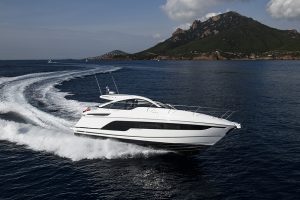Video: Mother and son paddleboat team rescued
Rescuers responded when family members noticed the boat drifting well off course.
The mother and son team attempting to paddle a foot-powered ‘pedalo’ boat across the Atlantic from Cape Town in South Africa to Rio de Janeiro in Brazil were rescued at the weekend by South Africa’s National Sea Rescue Institute (NSRI).
Adventurer and environmentalist Davey du Plessis, 27, and his mother Robyn Wolff, 50, were recovered from rough seas on Saturday afternoon, January 9, just a day after they had set off on their journey from the Royal Cape Yacht Club in Cape Town.
The NSRI reported that they first launched the sea rescue craft Rotarian Schipper after a request to deliver a tracking device to the paddle boat Herbivore.
NSRI Spokesman Craig Lambinon said in a statement: “In rough sea conditions the tracking device, which they had apparently mistakenly left behind, was delivered to the paddle boat in Table Bay and they continued on their voyage.”
The following day, the NSRI launched the rescue boat Rotary Onwards as a precaution when Wolff’s husband requested a search be carried out, seeing that the pair’s tracking device showed them to be well off course, adrift and nearing shore. South Africa’s Maritime Rescue Coordination Centre also placed an Air Force 22 Squadron Dakota rescue plane on alert.
 The initial launch failed to locate the paddleboat, and later Saturday afternoon the NSRI team in Table Bay launched their own rescue boat Spirit of Vodacom after a request for assistance from du Plessis and Wolff.
The initial launch failed to locate the paddleboat, and later Saturday afternoon the NSRI team in Table Bay launched their own rescue boat Spirit of Vodacom after a request for assistance from du Plessis and Wolff.
The rescue boat crew brought Du Plessis and Wolff on board the rescue boat and attempted to tow Herbivore, but heavy swell forced them to leave the boat at anchor in a sheltered spot near Dassen Island and left.
Du Plessis and Wolff returned to port in Table Bay.
Writing on his Facebook page, du Plessis said:
“The boat was handling strong Cape Seas, 40 knot winds & 4-6 metre swells but the pedal system just couldn’t beat the conditions as we tried to push further West & out to sea. We were both sea sick. I managed to eat & drink a bit, also reminding my mom to do the same.
“My mom was suffering from chronic sea sickness, she suggested we call for help but I told her this was to be expected & give it another day or two before we call for help, but my thoughts at the time were that we wouldn’t need help because we would be pushed back to shore & either beach the craft or call for a tow when much closer to land.
“I had been very preoccupied with managing the boat & had neglected updates to home, as I assumed the live tracking device would be sufficient. My mom then called Chanel & because they hadn’t heard from us directly for over 24 hours & noticed we were drifting way of course, they called NSRI to come find us. I was completely oblivious to any rescue efforts, as my mom & I lay hunkered in the boat waiting to see what the weather did, not feeling the need for rescue as we felt safe in the boat, uncomfortable, but safe. Never did it feel like a life threatening situation, so there was no need for a rescue.
“After the call to home & being told that there is a boat looking for us, I decided that seeing as the boat was near & that we were drifting closer to Dassen Island, I asked if we could get a tow & also tend to my mom.
“The reality is that with these adventures, especially if it’s something that hasn’t been done before, there are going to be challenges & set backs. Fortunately I have pulled some vital information from this experience, can now make some adjustments. I will miss my window period for departure, so have to encounter a delay & hopefully be ready to pedal the Atlantic at the end of this year.”
Du Plessis and Wolff were set to attempt the more than 4,000-mile crossing in late November, to draw attention to environmental issues, but pushed back their departure.
Dubbed the Atlantic Project, the trip was expected to take between three and five months, at an average speed of 2.5 knots, depending on weather conditions in the Atlantic.
In his blog, du Plessis wrote that he chose the pedalo design after looking into designs for rowboats often used in Atlantic and other ocean crossings.
Related links:
Photos: 60 mph winds capsize sailboat, prompt RNLI rescue
British adventurer Sarah Outen reunited with boat lost in hurricane
Pictures: mother and son team set to cross Atlantic in pedalo
Adventurer and environmentalist Davey du Plessis is aiming to cross the southern Atlantic from South Africa to Rio de Janeiro,…
Watch: five fishermen rescued off the Norwegian coast
Watch the dramatic footage of the trawler capsizing in freezing waters off the Norwegian coast, above the Arctic Circle.
Video: Dramatic footage captures RNLI sailboat rescue
The Yarmouth RNLI all-weather lifeboat team was called out to assist a 22ft yacht in Christchurch Bay on 10 December…











